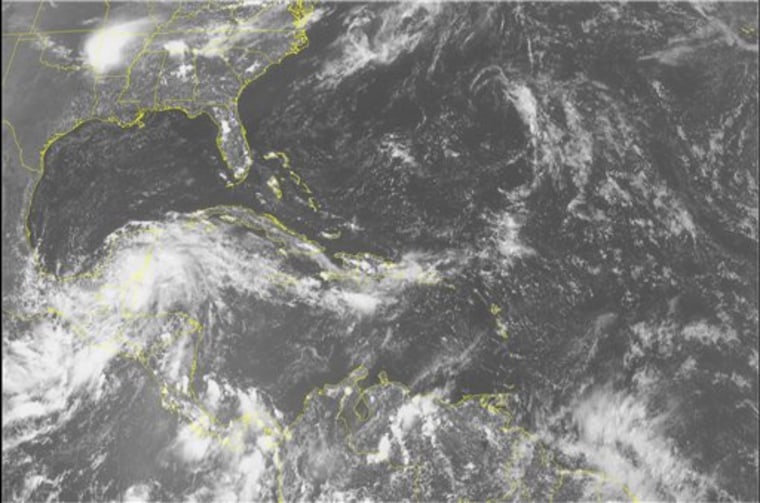A noted hurricane research team on Tuesday issued its latest Atlantic season forecast, leaving unchanged its previous estimate of eight hurricanes, four of them major, in what it expects will be an active six months.
William Gray, a former Colorado State University climatologist, pioneered the seasonal predictions in 1984.
The National Oceanic and Atmospheric Administration last month forecast 12 to 16 tropical storms, including six to nine hurricanes.
The CSU team predicted 15 tropical storms.
Of the eight hurricanes, four are expected to be "major" hurricanes, Category 3 or higher on the Saffir-Simpson scale of hurricane intensity, with sustained winds of more than 110 miles per hour, CSU forecasters said.
"Conditions in the tropical Atlantic look quite favorable for an active hurricane season," lead forecaster Phil Klotzbach said in a statement.
The average hurricane season produces roughly 10 tropical storms and six hurricanes.
The official six-month Atlantic hurricane season began on Sunday. The first cyclone of the year, Tropical Storm Arthur, formed a day earlier off the coast of Belize and moved quickly inland.
The storm lasted less than a day before weakening to a tropical depression, but it still forced Mexico to shut two of its three main crude oil ports because of rough season during the weekend.
Arthur drenched southern Mexico, Belize and Guatemala, threatening deadly flash floods and mudslides.
Energy, insurance and commodities markets have tracked Atlantic storms closely since the catastrophic years of 2004 and 2005.
Four powerful hurricanes hit Florida in 2004, collectively causing $45 billion in damage. In 2005, Hurricane Katrina became the costliest natural disaster in U.S. history when it ravaged New Orleans and the Gulf coast, causing $80 billion in damage and killing 1,500 people.
That year saw 28 tropical storms and hurricanes, the highest number since record-keeping began in 1851.
